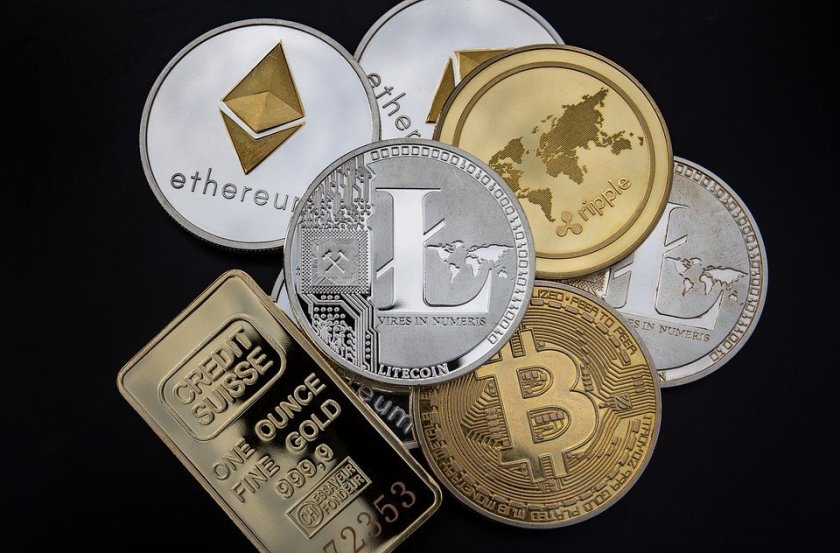Most people do not understand the concept and process of Bitcoin. Our extensive guide dives into the nitty-gritty in an easy-to-understand manner that won't leave you confused or frustrated.
Bitcoin was invented by an anonymous person under the pseudonym Satoshi Nakamoto. In October 2008, Nakamoto published a paper on blockchain and circulated it throughout the cryptographic community.
In 2009, Nakamoto completed the Bitcoin software’s code and invited other people from the open-source community to contribute.
He mined the first block himself on January 3, 2009. As per the public records of his Bitcoin addresses, Nakamoto currently owns Bitcoin worth over $40 billion, making him one of the wealthiest people in the world.
No one knows who Satoshi Nakamoto is. There have been many investigations by journalists. People have speculated that he is various students or celebrities, but nothing has yet been proven. It may sound ridiculous, but some have even claimed that Satoshi Nakamoto is a time traveler from the future.
What isn’t up for debate is that by inventing Bitcoin, Satoshi Nakamoto has revolutionized the concept of money, solving many of the problems that occur with traditional currency.
When you go to a bank to perform a transaction, it needs you to authenticate yourself. You may do this with your driver’s license, social security card, or handwritten signature. In any case, these mechanisms are in place so that only you can withdraw or transfer money that you own. If someone tries to impersonate you, he would be caught (hopefully).
As has been explained above, Bitcoin utilizes a public ledger, on which everyone records their transactions. But what’s to keep people from adding fraudulent transactions that benefit them? For instance, Bob could simply add to the ledger that Alice sent him money.
To prevent this, transactions are broadcast to the network along with a digital signature.
A digital signature ensures two things:
- The designated sender has sent the message.
- The message has not been tampered with.
- How to Use Bitcoin
There are numerous ways you can use Bitcoin, but all basically involve the same process. There are three steps to using Bitcoin: acquiring Bitcoin, managing your wallet, and trading Bitcoin for goods and services. Let’s look at the steps one by one: - Using Cryptocurrency on PayPal
In late 2020 PayPal announced customers could now buy, hold, and sell numerous cryptocurrencies on its platform, including Bitcoin, Ethereum, Bitcoin Cash, and Litecoin.
That move was just the beginning of a long-term strategy to incorporate digital currencies into PayPal’s operations. By early 2021, customers can use the cryptocurrencies to make purchases at more than 26 million websites currently using PayPal for transactions.
By mid-2021, PayPal announced it would enable cryptocurrencies on Venmo, its popular peer-to-peer payment app. PayPal has partnered with startup Paxos Trust company to facilitate these transactions.
The same month PayPal made its announcement, Twitter CEO Jack Dorsey’s financial company Square announced it had purchased 4,709 bitcoins for a price of $50 million. That investment represented one percent of Square’s total assets through the second quarter of 2020.
Even establishment financial institutions such as Fidelity Investments are dipping their toe into the cryptocurrency pool. In August 2020, Fidelity announced the launching of its first Bitcoin Fund. Fidelity clients can now access the Wise Origin Bitcoin Index Fund I through a new business unit called Fidelity Digital Funds.
By establishing both acquisition and retail features, PayPal represents perhaps the most accessible ‘gateway’ yet for Bitcoin and the other cryptocurrencies. Through PayPal, novice Bitcoin traders can begin to purchase Bitcoin and store it in a digital wallet PayPal provides. They can do this as an investment or as an alternative means of payment for any online purchase they wish to make.
Despite PayPal’s obvious hopes that this will catapult Bitcoin into the online payment currency of choice, some doubt this will take place anytime soon. Industry expert and author of several Cambridge University studies on cryptocurrencies and Blockchain, Michael Rauchs suggests that people who acquire Bitcoin will be more interested in holding on to it for its likely increasing investment value than spending it online.
Even if the initial tendency is to treat Bitcoin as more of an investment, the widespread appeal and trusted track record of PayPal is likely to introduce Bitcoin to a much wider audience at a much faster pace.
In December 2020, the major credit card companies announced they would no longer be associated with Pornhub. Launched in 2007, Pornhub is the biggest porn website in the world, with more than 130 million visitors a day.
- Sturdy and Durable: This OROPY wall mounted...
- Sleek Industrial Design: With its simple...
- Optimized Space Utilization: Expand your storage...
- Convenience at Your Fingertips: Hang your daily...
- Versatile Functionality: This multi-functional...
- 【Industrial Clothing Rack】 The clothing racks...
- 【Sturdy & Durable】 Our clothes racks are made...
- 【Height Adjustable】 The height of the lower...
- 【Multifunction Closet Rack】 Wall clothes rack...
- 【Multi-Scene Use】 Dimension: 115” L x87.5”...
- 【Safer Size/Style】: Whole sconces are UL...
- 【Outstanding Details】: Our high-quality black...
- 【NOTE】: Our bar lighting wall sconce include...
- 【Wide Application】: Vintage wall light...
- 【Tips】: As the tube bulb is a bit special, it...
The credit card boycott resulted from the December 2020 NY Times story which showed how the site contained several videos depicting child sexual abuse, rape, and revenge porn. Right away, Porhub underwent self-regulating corrective measures by deleting the majority of their videos and eliminating the site’s download capabilities which made it easy for illegal content to resurface.
Ultimately, these efforts proved to be too little, too late. Within days of the NY Times story, MasterCard cut all ties with Pornhub, quickly followed by Visa and Discover Card.
Pornhub first accepted cryptocurrency as payment on its site in 2018 when Verge and Tron blazed the trail, soon followed by Pumapay and stablecoin. Just months before the credit card boycott, Pornhub announced that Bitcoin and Litecoin would be accepted as payment.
The fallout from the NY Times article bodes well for Bitcoin’s future value. It’s unlikely Pornhub’s 76 million active paid members are just going to go away. It is more likely they will use Bitcoin (as the best-known cryptocurrency) as a payment method.
There are several examples of the porn industry driving innovation in technology. In the late 1970s, Betamax and VHS were fighting for videocassette supremacy. Betamax had the superior quality but VHS cassettes were better to produce and distribute feature-length videos. Beta didn’t want to have their platform used for adult videos and this was one of the leading factors in VHS becoming the home video standard.
The porn industry was largely responsible for the boom of online payment technology around the turn of the millennium. In 1999, online users spent more than 1.3 billion on porn sites. This worked out to more than people were spending on books and airfare.
The porn industry didn’t invent online payment, it simply became the engine behind its rapid proliferation. The same dynamic appears to be at play with cryptocurrency adoption.
- How to Make Money from Cryptocurrency
Blockchain technology is completely new and there are plenty of opportunities to monetize it. There are basically two ways you can do that – through mining and investing. - Is Bitcoin Legal?
With the rising popularity of Bitcoin, cryptocurrencies in general have caught the attention of government and financial regulatory bodies. Unlike counterfeit fiat currency, which is illegal, in most countries Bitcoin itself is legal. - The Dark Side of Bitcoin
Though Bitcoin has many advantages – which we have discussed at length – some government warnings against it are not entirely unfounded.
That is because there are criminal elements that seek to take advantage of all the excitement and media hype surrounding Bitcoin. For instance, there are cyber criminals who launch Ponzi schemes promising astronomical returns on investments. Only after their money has disappeared do people realize they were duped. Many governments are therefore running awareness campaigns advising people to stay skeptical and invest cautiously.
Launched in Bulgaria in September 2014, Onecoin eventually became one of the biggest online scams in history, taking in more than $4 billion in just a few years. Onecoin turned out to be a Ponzi scheme designed by its founders, Ruja Ignatova, and Sebastian Greenwood.
Onecoin appeared to be completely legitimate with all the protocols and safeguards, one would expect. Coins were obtained through mining with Onecoin acting as a central network. The coins could later be exchanged for Euros through OneCoin Exchange xcoinx.
According to their YouTube explainer video, Onecoin had Know-Your-Customer (KYC) protocols in place to guard against money laundering. It also laid claim to being the first cryptocurrency with a monthly audit of its blockchain.
In reality, OneCoins weren’t mined using computer resources. Instead, their worth was predetermined by the scammers who programmed the coin to gradually increase from €0.50 ($0.56) to €29.95 ($33.68) in value. They even went so far as to award coins that didn’t exist to their members. Following a lengthy investigation, police determined that there was no true blockchain that was public and verifiable.
Bitcoin was the first, and remains the most major implementation of blockchain. However, since then, people have come up with various other ways of using the system.




